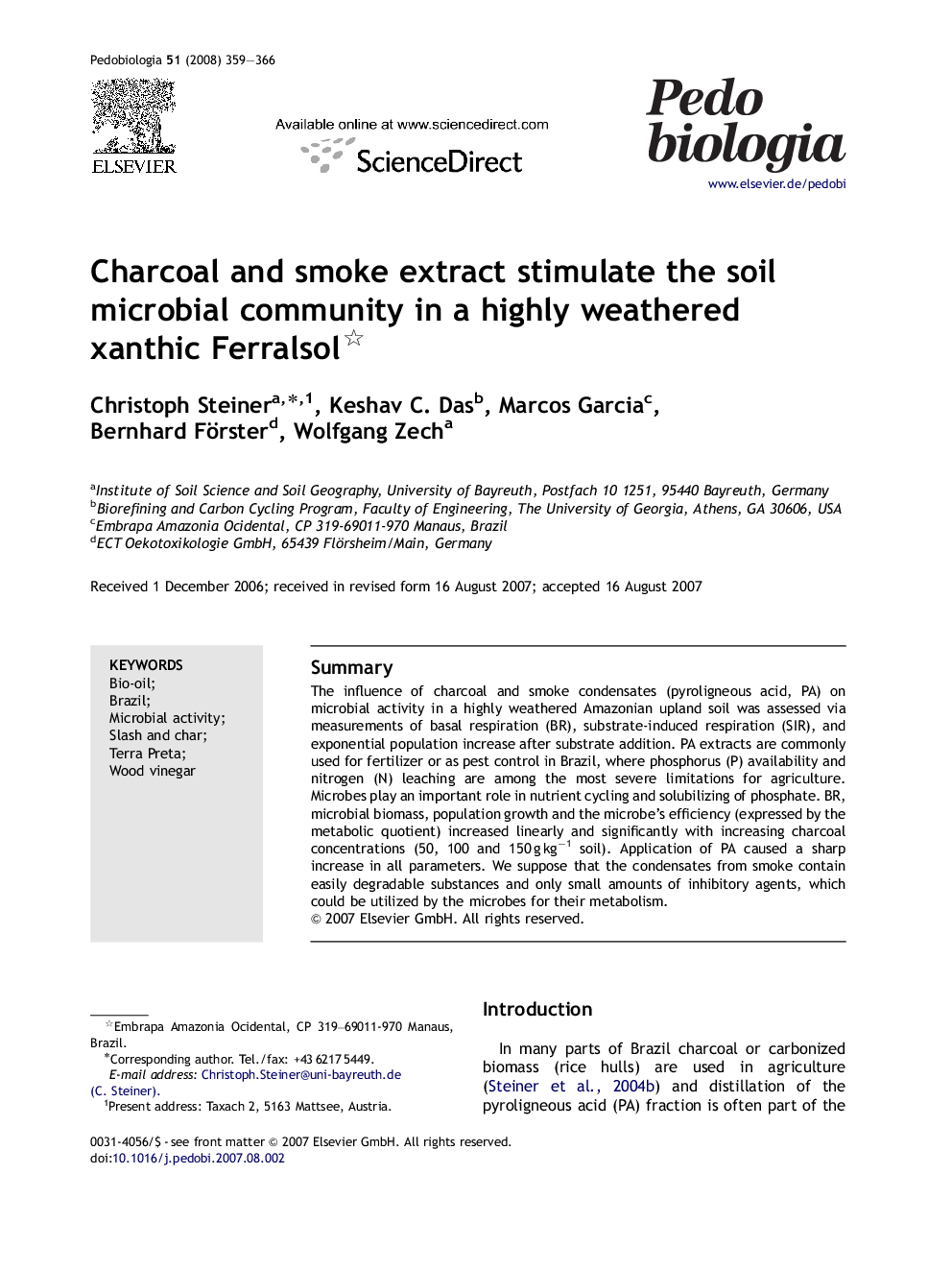| Article ID | Journal | Published Year | Pages | File Type |
|---|---|---|---|---|
| 2061364 | Pedobiologia | 2008 | 8 Pages |
SummaryThe influence of charcoal and smoke condensates (pyroligneous acid, PA) on microbial activity in a highly weathered Amazonian upland soil was assessed via measurements of basal respiration (BR), substrate-induced respiration (SIR), and exponential population increase after substrate addition. PA extracts are commonly used for fertilizer or as pest control in Brazil, where phosphorus (P) availability and nitrogen (N) leaching are among the most severe limitations for agriculture. Microbes play an important role in nutrient cycling and solubilizing of phosphate. BR, microbial biomass, population growth and the microbe's efficiency (expressed by the metabolic quotient) increased linearly and significantly with increasing charcoal concentrations (50, 100 and 150 g kg−1 soil). Application of PA caused a sharp increase in all parameters. We suppose that the condensates from smoke contain easily degradable substances and only small amounts of inhibitory agents, which could be utilized by the microbes for their metabolism.
